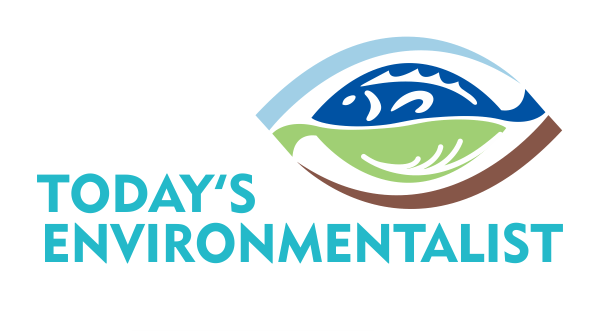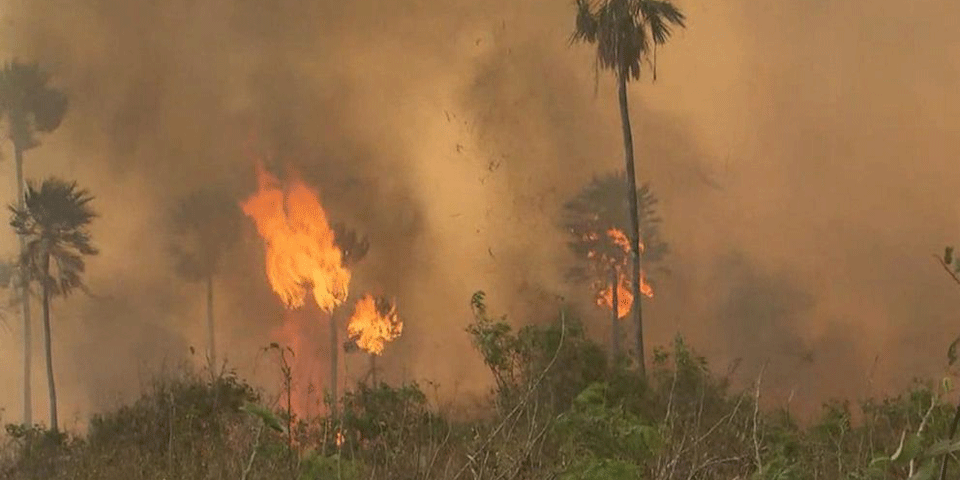Driven by the urgency of the mounting and catastrophic environmental threats facing the Amazon, a group of 150 renowned scientists from eight Amazon countries, French Guiana and Global partners have formally launched a scientific initiative whose task is to deliver, for the first time, a scientific assessment of the state of the Amazon basin.
The Scientific Panel for the Amazon will carry out the first scientific review of the entire Amazon basin and its biomes, which will be presented in 2021. Supported by the United Nations Network for Sustainable Development Solutions, the public launch of the Scientific Panel has counted on the assistance of a group of strategic advisers, including former Colombian President Juan Manuel Santos, cultural icons such as the famous photographer Sebastiäo Salgado and the leader of the indigenous peoples of the Amazon, José Gregorio Díaz Mirabal.
“Our message to political leaders is that there is no time to lose,” said Carlos Nobre, Co-Director of the Scientific Panel for the Amazon. “The current development model is fueling deforestation and loss of biodiversity, leading to devastating and irreversible change. If the Amazon wants to survive, we must show how it can transform to generate economic and environmental benefits, as a result of collaboration between scientists, indigenous people and their leaders, and governments.
The current rate of deforestation in the Amazon, coupled with last year’s devastating forest fires, have brought the world’s largest tropical forest to its tipping point, adding urgency and motivating leaders in Colombia, Bolivia, Ecuador, Peru, Guyana, Brazil and Suriname to sign the Leticia Pact last September in the Colombian city of Leticia. The agreement commits the governments of the seven nations to protect the Amazon and the treasures of its biodiversity, to respect the rights of the traditional peoples of the region and to explore innovative forms of development in a sustainable way, keeping forests standing.
“The conservation of the Amazon is fundamental not only for the survival of the 35 million people and thousands of species that live there, but also for the planet,” said Santos, 2016 Nobel Peace Prize Laureate and former President of Colombia.
To support political leaders in an informed implementation of the Leticia Pact, Nobre, Encalada and other members of the scientific panel are developing a uniform and coherent plan for the future of the Amazon, which will be based on a review of rigorous scientific research and It will produce a series of recommendations relevant to the policies in conservation and advancement of the sustainable development of the world’s largest tropical forest.
“The massive forest fires showed the world that the Amazon is in grave danger and also revealed a high level of concern globally for the peoples of the Amazon and the health of the forest,” said Jeffrey Sachs, a professor at Columbia University and Director of the United Nations Sustainable Development Solutions Network.
Covering eight countries and one territory, and home to more than a tenth of all existing species on Earth, this invaluable ecosystem is currently threatened by deforestation, fire, mining, oil and gas development, large dams for hydroelectric generation and illegal invasions. Only in the month of July 2019, a forest area the size of Luxembourg was lost due to deforestation and fires. Still, and despite the bans announced by the Brazilian government, in July 2020, the fire season has started again.
Build economic value while keeping forests standing
Drawing on the review of previous research in the fields of environmental science, economics and technology, the new plan – focused on data – will combine conservation with a sustainable development model that recognizes the Amazon as a vital interconnected ecosystem and a necessary source of resources for the people who live in it, according to Marielos Peña-Claros, Bolivian author of the Panel and member of its Scientific Steering Committee.
“We are beginning to understand the importance of the Amazon jungle in the food we eat, the water we drink and the life we live,” says Peña-Claros. “For example, the rainfall pattern in South America is largely determined by the water cycle of the Amazon rain forest. This means that deforestation in the Amazon also has a negative effect on agricultural production thousands of kilometers away. “
Peña-Claros and other researchers recognize that agriculture, industry, and governments depend on forest resources to sustain the economy and generate wealth and well-being. They argue that, with careful monitoring and management, the development of the Amazon does not have to mean exploitation, a perspective that José Gregorio Díaz Mirabal emphasizes.
“We must save the Amazon and the future of humanity through an economy that respects the life cycles of nature and recognizes their rights and those of indigenous peoples,” said José Gregorio Díaz Mirabal, COICA leader, (Coordinator of the Indigenous Organizations of the Amazon Basin). “We seek an economy that sees life as a whole and not only the conjunctural monetary benefit, which means that its success will depend on the deep participation of indigenous peoples and the recognition of our rights to our ancestral territories.”
“Without immediate action to stop deforestation and begin replacing lost trees, half of the Amazon rain forest could become savanna in 15 to 30 years,” according to Nobre, a member of the Brazilian Academy of Sciences. “The Amazon rainforests create 20-30% of their own rainfall, so preserving them is vital for both regional climate systems and food production and to stabilize the global climate.”
“Deforestation is now at 17%,” said Nobre, “but if it exceeds 25%, we will cross the tipping point.
The current pace of deforestation and forest fires, which in 2019 devastated nearly 14,000 square kilometers of the Amazon and brought the world’s largest tropical forest closer to its tipping point, were what motivated scientists to sign a letter last year called The Scientific Framework to save the Amazon.
With the support of the Strategic Committee, the Scientific Panel that will produce the Scientific Assessment of the State of the Amazon Basin will subsequently launch a campaign based on its findings. The urgent need to protect nature is increasingly clear. The World Economic Forum recently estimated that the value of intact ecosystems in the world economy is $ 33 trillion, noting that 80 percent of the world’s biodiversity is protected by indigenous peoples.
The Scientific Panel for the Amazon ( SPA ) is convened under the auspices of the Sustainable Development Solutions Network ( SDSN ). The objective of the SPA is to provide, in a comprehensive, objective, open and transparent manner, the information necessary for a rigorous scientific evaluation of the state of the diverse ecosystems, drivers and trends of land use and climate change in the Amazon, and the long-term implications of the region’s well-being, as well as exploring opportunities and options relevant to the conservation and sustainable development policies of the Amazon.






